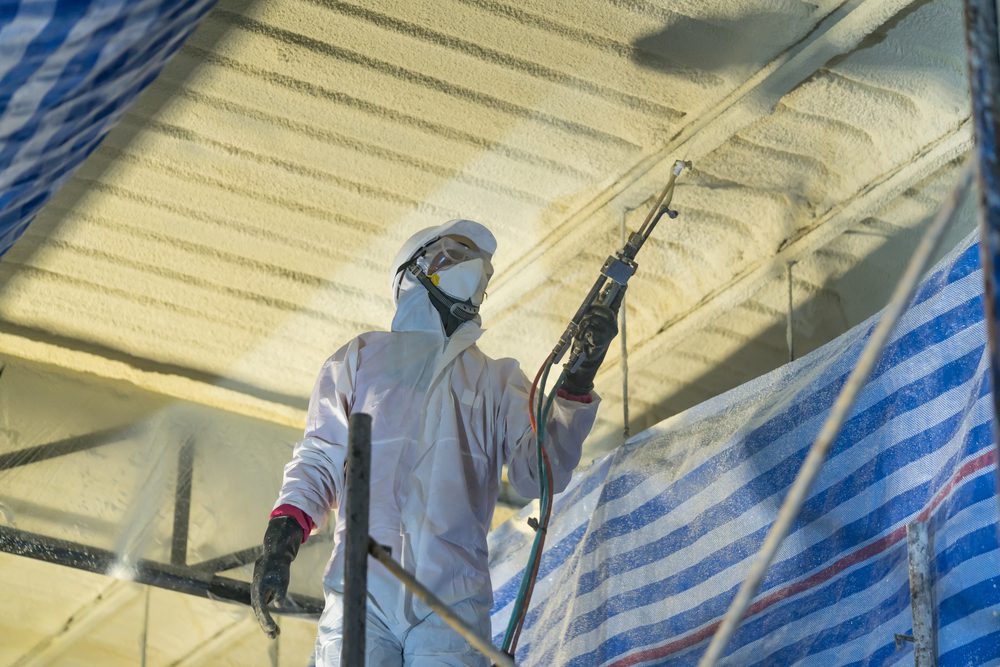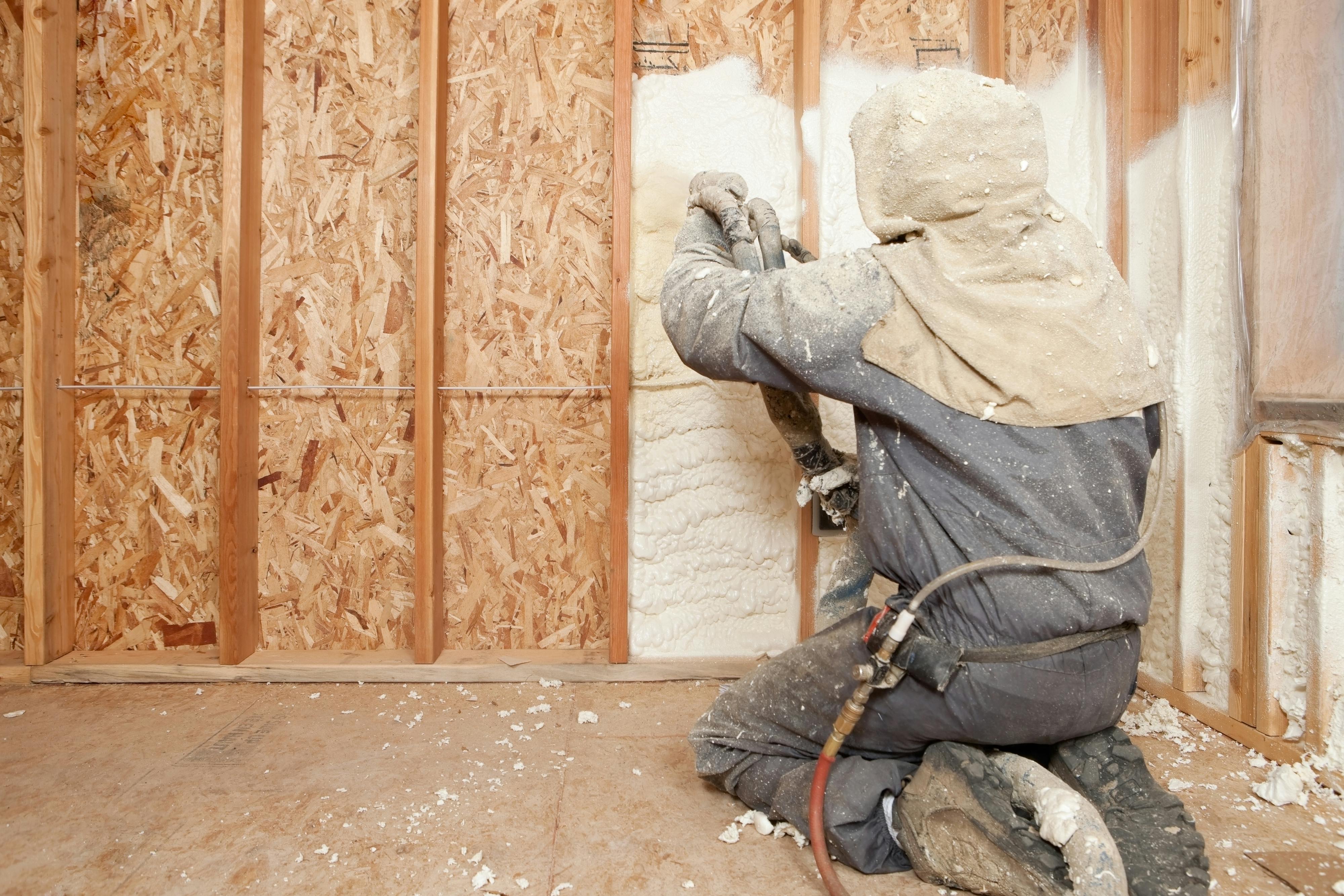
Hiring a spray foam insulation company in Easton, MD has become a common decision among homeowners, agricultural operators, and commercial property owners. Whether the goal is to improve thermal control, air quality, or long-term energy performance, insulation plays a measurable role in building efficiency. Choosing professionals for installation reduces risk, improves application accuracy, and ensures compatibility with local building codes.
This guide outlines the practical benefits, available services, and real-world results that insulation professionals bring to residential, commercial, and agricultural projects across Easton.
Why Spray Foam Insulation Is Worth Considering
Spray foam insulation offers a high R-value and advanced air sealing capabilities. It’s used in a wide range of applications, from attics and crawlspaces to commercial warehouses and agricultural facilities. Unlike traditional materials, spray foam expands on contact, sealing gaps and providing both thermal and moisture control.
Energy Performance and HVAC Relief
- Closed cell spray foam reduces unwanted airflow and temperature swings
- Open cell spray foam improves indoor comfort and dampens noise transmission
- Spray foam can reduce HVAC workload and improve system longevity
Moisture Resistance and Mold Prevention
Air sealing properties minimize moisture migration, which helps prevent condensation inside walls. This is especially relevant for Easton-area homes affected by seasonal humidity.
Compatibility With Different Structures
Spray foam works effectively in older homes, metal buildings, pole barns, and new construction. Application can be tailored for wall cavities, subflooring, crawlspaces, or roofing.
Local Insulation Services Available in Easton, MD
Peninsula Insulation, LLC offers a comprehensive range of spray foam insulation services in Easton. Each option serves a specific application, with material types and techniques selected for the project’s structural and thermal demands.
Open Cell Spray Foam
Used for interior walls and rooflines where vapor permeability is acceptable. It expands more than a closed cell and provides excellent sound dampening.
Closed Cell Spray Foam
Denser and more moisture-resistant, suitable for basements, crawlspaces, and roofs. Enhances structural rigidity and air sealing.
Agricultural Insulation
Applied in barns, poultry houses, and storage units to maintain stable conditions for crops and animals. Reduces energy waste and promotes equipment longevity.
Residential Insulation
Tailored for attics, wall cavities, rim joists, and crawlspaces. Helps maintain indoor comfort and supports energy-efficient upgrades.
Commercial Insulation
Applied in office buildings, retail centers, and industrial sites. Improves HVAC performance, acoustic control, and overall energy management.
Blown-In Insulation
Loose-fill material used in attic floors or wall cavities. Adds thermal coverage and is often used in combination with air sealing.
Fiberglass Insulation
Traditional batt or blown-in form. Used where budget flexibility is limited or where code requires a specific assembly type.
Mineral Wool Insulation
Offers fire resistance and sound absorption. Commonly installed in multifamily properties or buildings with code-mandated fire separation walls.
Air Sealing
A preparatory process that closes leaks before insulation. Vital for improving insulation performance and reducing indoor drafts.
Foundation Insulation
Installed along basement or crawlspace walls. Helps manage heat loss and moisture intrusion near slab-on-grade or below-grade assemblies.
New Construction Insulation
Integrated into framing and roof systems during the build phase. Ensures performance is baked into the structure from day one.
Thermal Barrier System
Code-mandated thermal layers applied over spray foam in habitable spaces. Protects occupants by adding fire resistance.
Crawlspace Encapsulation
Encases the floor and wall systems in a moisture and vapor barrier. Often paired with dehumidifiers and spray foam to stop musty air and structural rot.
Comparing DIY and Professional Spray Foam Installation
DIY insulation kits are available, but the technical risks and code violations that often follow can result in costly repairs. Professional teams in Easton carry the right equipment and material knowledge to manage application depth, ventilation safety, and R-value optimization.
Feature | DIY Kits | Professional Installation |
|---|---|---|
Material Handling | Limited experience | Code-compliant, optimized |
| Coverage Accuracy | Inconsistent application | Uniform coverage, tested depth |
Risk of Improper Curing | High | Controlled with ventilation equipment |
| Building Code Compliance | Often unknown | Fully compliant |
| Long-Term Performance | Variable | Predictable and documented |
Misconceptions About Spray Foam Insulation
Several myths persist around spray foam insulation, but technical studies and field results tell a different story.
It’s Only for New Homes
Retrofitting older homes with spray foam is common. Air sealing benefits are often more pronounced in drafty, older buildings.
It Traps Moisture
Closed cell spray foam resists moisture migration. When installed with proper vapor control, it reduces the risk of interior condensation.
It’s Too Expensive
While upfront costs are higher than fiberglass, long-term savings on heating and cooling often recover the investment in under five years.
It Can’t Be Removed
Foam can be trimmed or replaced during renovations. Removal is labor-intensive but entirely possible.
Environmental and Energy Impacts
Choosing high-performance insulation directly affects energy demand and carbon emissions. Proper insulation reduces fossil fuel use and supports state-level sustainability goals.
Energy Efficiency Gains
A well-sealed building envelope reduces heating and cooling cycles. This improves comfort and reduces strain on HVAC systems.
Reduced Carbon Footprint
Lower energy use translates to reduced greenhouse gas emissions, especially when paired with energy-efficient appliances and HVAC systems.
Recyclability and Air Quality
Newer foam products use improved blowing agents that are low in global warming potential (GWP). Closed cell foam can also improve indoor air quality by minimizing pollen and allergen infiltration.
Conclusion
Hiring a spray foam insulation company in Easton, MD makes practical and financial sense. Whether upgrading an existing property or building something new, spray foam helps meet energy codes, improve indoor air, and reduce utility costs. The range of services available through trained professionals allows for accurate, efficient, and long-lasting insulation systems.
Ready to Achieve Energy-Efficient Indoor Performance
Insulation plays a direct role in reducing energy waste and controlling humidity. Peninsula Insulation, LLC helps Easton property owners implement solutions that match structural needs and budget goals.
Call (410) 770-2624 or email [email protected] to schedule an insulation assessment.
FAQs
What insulation type is best for crawlspaces?
Closed cell spray foam is often used in crawlspaces because it resists moisture and adds structural strength. It works well in Easton’s humid conditions.
Is spray foam safe for homes with children or pets?
Yes, once cured, spray foam is inert and non-toxic. Installers follow ventilation protocols during application to protect indoor air quality.
Can insulation be added to an already finished home?
Yes, blown-in insulation and spray foam can be installed in existing wall cavities, attics, and basements with minimal disruption.
What are signs my home needs new insulation?
Cold floors, inconsistent temperatures, rising energy bills, or visible mold may indicate failing or insufficient insulation.
How long does spray foam insulation last?
Spray foam can last for decades—often matching or exceeding the lifespan of the structure. Proper installation ensures thermal and air-sealing performance remains stable over time.
Reviewer Note
Author: Wil Perkins is the founder of Peninsula Insulation and a long-time resident of Easton, Maryland. With a hands-on approach and nearly five years in the insulation business, Wil leads a team known for professional service and quality work. He’s committed to providing best Spray Foam Insulation solutions and lasting results for every project.
Reviewer: Emily Martinez has 12 years of experience in spray foam insulation. She reviewed this article and suggested ways to make the content more useful for contractors looking to grow their customer base.

